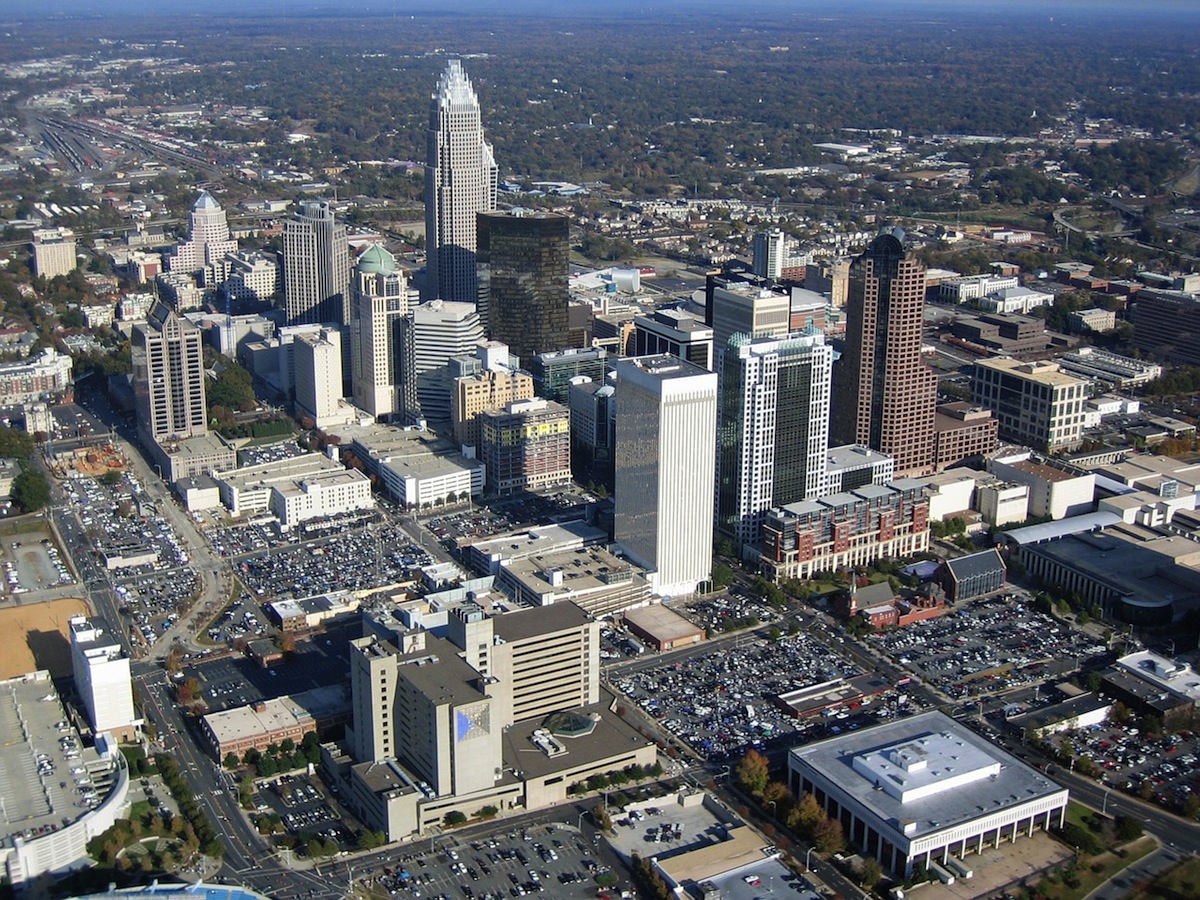The Greater Charlotte, N.C., area is the best city to work for a small business, according to a new survey by Wallet Hub, the three-year-old website that provides tools and information to consumers and small business owners to help them make financial decisions.
Wallet Hub analyzed the small-business environment in the 100 most populated metros in the U.S., and used 11 metrics to assess which cities are friendliest to workers and job seekers.
The study concluded that Charlotte-Concord-Gastonia, N.C., ranked first as the country’s best small business environment, based on the number of businesses with fewer than 250 employees, the growth of those business, net job growth, industry variety, the percentage of small businesses that provide health insurance to employees, and employee earnings.
Wallet Hub also ranked Greater Charlotte 18th for its economic environment, which includes its median annual income, unemployment rate, average hours worked, population growth, and “well-being index.”
Combining the two scores, Wallet Hub ranked Charlotte first overall as the best city to work for a small business. Charlotte is followed by Raleigh, N.C., (with a small-business environment rank of 10th, and economic environment rank of 3rd). Oklahoma City (2nd and 21st), Austin-Round Rock, Texas (14th and 4th), and Omaha-Council Bluffs, Neb. (4th and 12th).
The worst metros to be working for a small business, based on Wallet Hub’s criteria, are Youngstown-Warren-Boardman, Ohio/Pa. (100th, 95th), Stockton-Lodi, Calif. (99th, 85th), Toledo, Ohio (87th, 100th) Scranton-Wilkes Barre-Hazelton, Pa. (84th, 99th), and Fresno, Calif. (98th, 72th).
Wallet Hub also ranked metros by different subcategories. For example, three of the top five metros with the highest net small-business job growth are in Florida: Cape Coral-Fort Myers, Lakeland-Winter Haven, and North Port-Sarasota-Bradenton. Conversely three of the five metros with the lowest small-business job growth are in California: Bakersfield, Stockton-Lodi, and Fresno.
Miami-Fort Lauderdale-West Palm Beach, Fla., ranks highest for the number of small business per 1,000 inhabitants. That ratio in Miami is two times higher than in Bakerfield, which ranks lowest in this subcategory.
Houston-The Woodlands-Sugar Land, Texas, has the highest earnings for small business employees (adjusted for cost of living), whereas Honolulu has the lowest earnings.
Wallet Hub also finds that the unemployment rate in Fresno is four times higher than in Provo, Utah. Cape Coral is expected to have the highest increase (103.4%) in population through 2042, while Youngstown is projected to have the highest decrease over the period (11.1%)
Wallet Hub offers some tips for employees looking to land a small-business job. It recommends that job seekers tailor their search, “but avoiding limiting yourself” to a certain job classification or industry. It also recommends that job seekers look beyond their immediate compensation and consider the longer-range growth prospects that an employer can offer. And job candidates need to be ready to defend any information about themselves that might be floating around on social media.
Related Stories
| Nov 10, 2010
$700 million plan to restore the National Mall
The National Mall—known as America’s front yard—is being targeted for a massive rehab and restoration that could cost as much as $700 million (it’s estimated that the Mall has $400 million in deferred maintenance alone). A few of the proposed projects: refurbishing the Grant Memorial, replacing the Capitol Reflecting Pool with a smaller pool or fountain, reconstructing the Constitution Gardens lake and constructing a multipurpose visitor center, and replacing the Sylvan Theater near the Washington Monument with a new multipurpose facility.
| Nov 9, 2010
Just how green is that college campus?
The College Sustainability Report Card 2011 evaluated colleges and universities in the U.S. and Canada with the 300 largest endowments—plus 22 others that asked to be included in the GreenReportCard.org study—on nine categories, including climate change, energy use, green building, and investment priorities. More than half (56%) earned a B or better, but 6% got a D. Can you guess which is the greenest of these: UC San Diego, Dickinson College, University of Calgary, and Dartmouth? Hint: The Red Devil has turned green.
| Nov 9, 2010
12 incredible objects being made with 3D printers today
BD+C has reported on how 3D printers are attracting the attention of AEC firms. Now you can see how other creative types are utilizing this fascinating printing technology. Among the printed items: King Tut’s remains, designer shoes, and the world’s smallest Rubik’s Cube.
| Nov 9, 2010
U.S. Army steps up requirements for greening building
Cool roofs, solar water heating, and advanced metering are among energy-efficiency elements that will have to be used in new permanent Army buildings in the U.S. and abroad starting in FY 2013. Designs for new construction and major renovations will incorporate sustainable design and development principles contained in ASHRAE 189.1.
| Nov 9, 2010
Designing a library? Don’t focus on books
How do you design a library when print books are no longer its core business? Turn them into massive study halls. That’s what designers did at the University of Amsterdam, where they transformed the existing 27,000-sf library into a study center—without any visible books. About 2,000 students visit the facility daily and encounter workspaces instead of stacks.
| Nov 9, 2010
Turner Construction report: Green buildings still on the agenda
Green buildings continue to be on the agenda for real estate owners, developers, and corporate owner-occupants, according to the Turner 2010 Green Building Market Barometer. Key findings: Almost 90% of respondents said it was extremely or very likely they would incorporate energy-efficiency improvements in their new construction or renovation project, and 60% expected to incorporate improvements to water efficiency, indoor environmental quality, and green materials.
| Nov 5, 2010
New Millennium’s Gary Heasley on BIM, LEED, and the nonresidential market
Gary Heasley, president of New Millennium Building Systems, Fort Wayne, Ind., and EVP of its parent company, Steel Dynamics, Inc., tells BD+C’s Robert Cassidy about the Steel Joist Manufacturer’s westward expansion, its push to create BIM tools for its products, LEED, and the outlook for the nonresidential construction market.
| Nov 3, 2010
First of three green labs opens at Iowa State University
Designed by ZGF Architects, in association with OPN Architects, the Biorenewable Research Laboratory on the Ames campus of Iowa State University is the first of three projects completed as part of the school’s Biorenewables Complex. The 71,800-sf LEED Gold project is one of three wings that will make up the 210,000-sf complex.
| Nov 3, 2010
Park’s green education center a lesson in sustainability
The new Cantigny Outdoor Education Center, located within the 500-acre Cantigny Park in Wheaton, Ill., earned LEED Silver. Designed by DLA Architects, the 3,100-sf multipurpose center will serve patrons of the park’s golf courses, museums, and display garden, one of the largest such gardens in the Midwest.
| Nov 3, 2010
Public works complex gets eco-friendly addition
The renovation and expansion of the public works operations facility in Wilmette, Ill., including a 5,000-sf addition that houses administrative and engineering offices, locker rooms, and a lunch room/meeting room, is seeking LEED Gold certification.














